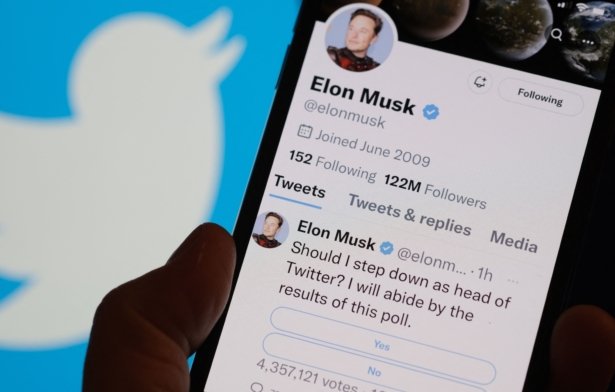Elon Musk said on Tuesday that he will stand down as CEO of Twitter but will stay active in operations until a suitable replacement is found.
“I will quit as CEO as soon as I find someone stupid enough to accept the position!” “After that, I’ll solely be in charge of the software and servers teams,” Musk stated on Twitter.
I will resign as CEO as soon as I find someone foolish enough to take the job! After that, I will just run the software & servers teams.
— Elon Musk (@elonmusk) December 21, 2022
Musk held a poll on Dec. 18 asking if he should stand down from the post less than two months after purchasing the social network, promising to follow the findings.
The final vote count revealed that 57.5 percent favored Musk’s exit. Musk supporters speculated that the poll may have attracted bots who voted “yes.”
Musk, who did not expand on his statements that a good candidate would be “foolish” to accept the position, has been repeatedly chastised by left-wing media sites, journalists, and politicians.
Twitter Files
Since taking over in late October, Musk has endorsed a selection of independent journalists to access and report on records of internal Twitter discussions that paint a picture of a censorship machine that collaborated with government agencies to restrict material, particularly from conservative-leaning accounts.
Musk granted access to a trove of documents to several individuals—investigative reporter Matt Taibbi, journalist Bari Weiss, author Michael Shellenberger, and journalist Lee Fang—who have been releasing them in tranches dubbed the “Twitter Files.”
The series of reports, published first on Twitter, have focused on Twitter’s censorship tools, the suppression of the New York Post’s Hunter Biden laptop story, the deplatforming of former President Donald Trump, how Twitter executives worked with the FBI and Intelligence Community to censor users, and how the platform helped the U.S. military’s influence operations.
Any New CEO ‘Must Like Pain a Lot’
Before the poll closed, Musk engaged with several posts about him potentially leaving the top job.
Musk responded to one user who suggested Musk hire a new CEO, saying, “The question is not finding a CEO, the question is finding a CEO who can keep Twitter alive.”
In response to podcast host Lex Fridman, who offered to do the job, Musk said that any new Twitter CEO “must like pain a lot. One catch: you have to invest your life savings in Twitter and it has been in the fast lane to bankruptcy since May. Still want the job?”
Last month, Musk told a Delaware court that he’d reduce his time at Twitter and eventually find someone else to take over as its chief.





